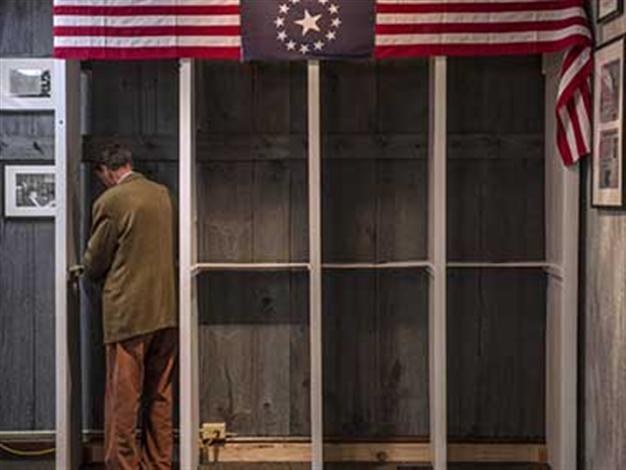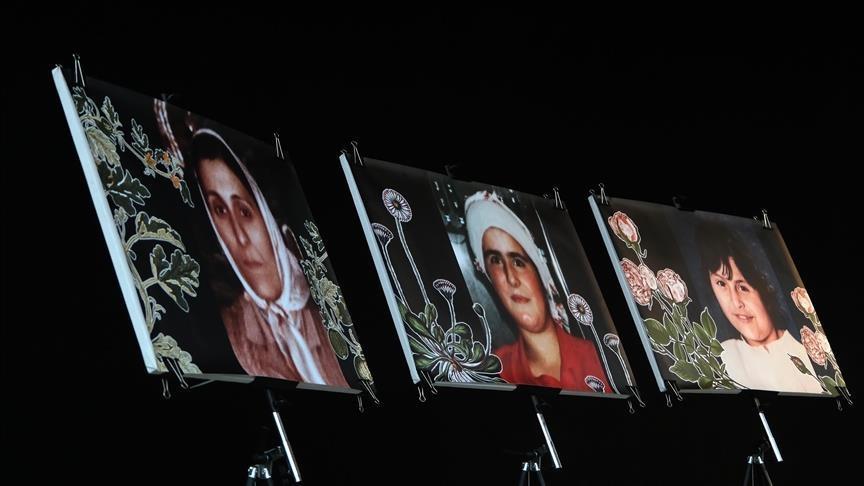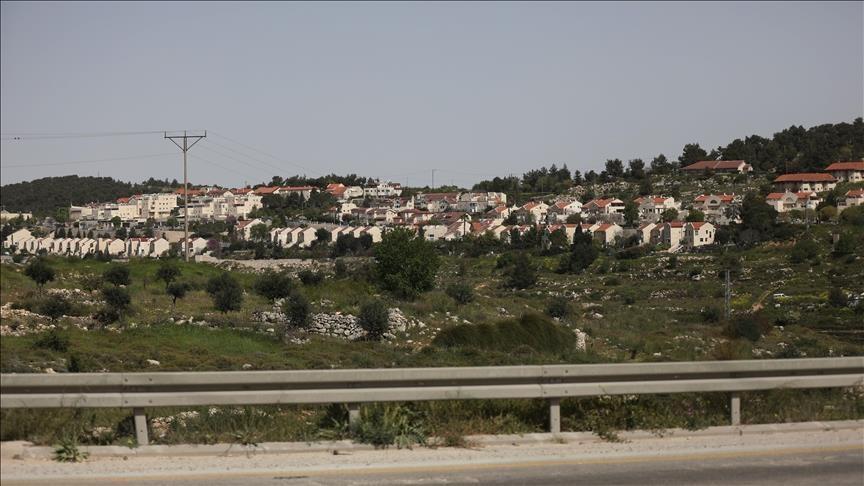Storm chaos sets election obstacle course
NEW JERSEY - Agencce France-Presse

AFP Photo
Adora Agim had lined up before dawn to vote in Hoboken, New Jersey, but already the sun was up and the doors to her polling station in the storm-ravaged city remained shut.
"This is unacceptable. We have been here since six, and some of us before that," Agim, 38, complained as a volunteer polling official tried to placate the growing, grumbling crowd of about 60 people on a street lined with flood debris from superstorm Sandy.
Finally the station opened, 40 minutes late.
"Please excuse the appearance of this place. Two days ago it was under two feet of water," the official apologized.
"You're really late," another voter repeated.
Hoboken, across the Hudson River from New York City, was hammered during hurricane-strength Sandy last week. Much of the town was inundated by the storm surge, power was knocked out for several days, and thousands of people lost their homes.
The aftermath of the natural disaster made Tuesday's presidential election a voting obstacle course, with dozens of polling stations in New Jersey and New York forced to relocate because of storm damage.
Agim, a software engineer hoping for President Barack Obama's re-election, said when she called officials Monday, she was told to go to her regular neighborhood polling place.
As instructed, she went to the designated school in the near-freezing pre-dawn, only to find a scene of disarray and "a note on the door" telling her to go two blocks to an alternate site, a senior services center.
But there, the late opening reflected that even replacement facilities weren't having an easy time.
Garbage and oily mud from the flood lined the sidewalks outside, with furniture, bits of broken drywall, plastic bags, and scattered items including a Woody Allen DVD piled waist-high in places.
John Margolis, a 46-year-old investment banker supporting Republican Mitt Romney, discovered when he got inside that the electronic voting machine was not working.
He was told to join another line to fill out a paper ballot. That queue was too long and he decided to return later in the day -- perhaps enough time to change his mind about whom to vote for.
"Fiscally, I am 100 percent behind Romney, or I was until last week," said Margolis, who added that he had been impressed with the Obama administration's response to the storm. "It has been a long week in Hoboken," he said.
The harried polling officials had their own problems. When three pizzas were delivered for a late lunch, they turned out to be cold.
"We'll just put them near a heater," one official said.
"No, there's no heater working," another replied glumly.
New Jersey is a Democratic stronghold and the organizational difficulties shouldn't influence the result of the presidential election. The same goes for New York, where there were also scattered voting delays in neighborhoods hit hard by Sandy.
But some in Hoboken, which was among the most heavily flooded areas in the October 29 storm, said it was unfair to hold such an important election when many people were still trying to get the basics of life together.
"It should have been cancelled for two weeks to get people back in their houses," retired city housing inspector Jude Fitzgibbons, 65, said after voting for Obama.
"People involved in this storm should have been able to step back and take a deep breath," he said. "People are worrying about putting a roof over their heads, feeding their kids. They should have waited. There would have been more calm." New Jersey authorities made the novel decision to allow voting by email for people displaced in the storm, but another Hoboken resident, Frances Rhodes-Kearns, scoffed at that idea.
"We were displaced and just got back to our home. But although we've got a laptop, we have no Wi-Fi," said Rhodes-Kearns, 59.
Vivian Hasbrouk, 44, saw chest-deep flooding in her street on the west side of Hoboken and spent two days marooned with her two young children in a third floor apartment. While the floods have receded and she was able to vote, many others would keep away, she said.
"The four or five elderly people we check up regularly on in our street, I doubt they'll be coming. It's cold," she said. "Our block was hit hard." Anecdotal evidence suggested a mixed turnout in Hoboken. On the side of town hit harder by the storm, polling station officials reported average traffic, while in a relatively untouched neighborhood to the east, one official said: "It's much higher than in 2008. We had a line out onto the street this morning." Agim, an immigrant from Nigeria, said the chaos shouldn't prevent voting. "I have lived in a Third World country where your vote does not matter," she said. "It's nice to be somewhere where it matters." Volunteer campaigners braving the cold to hand out leaflets concerning local election issues agreed.
"I think for people in Hoboken it's important to vote, even more so. It's like, 'Yes, Sandy, we're going to come out and vote,'" Arthur MacDonald, 21, said as he distributed flyers on the board of education race.
















